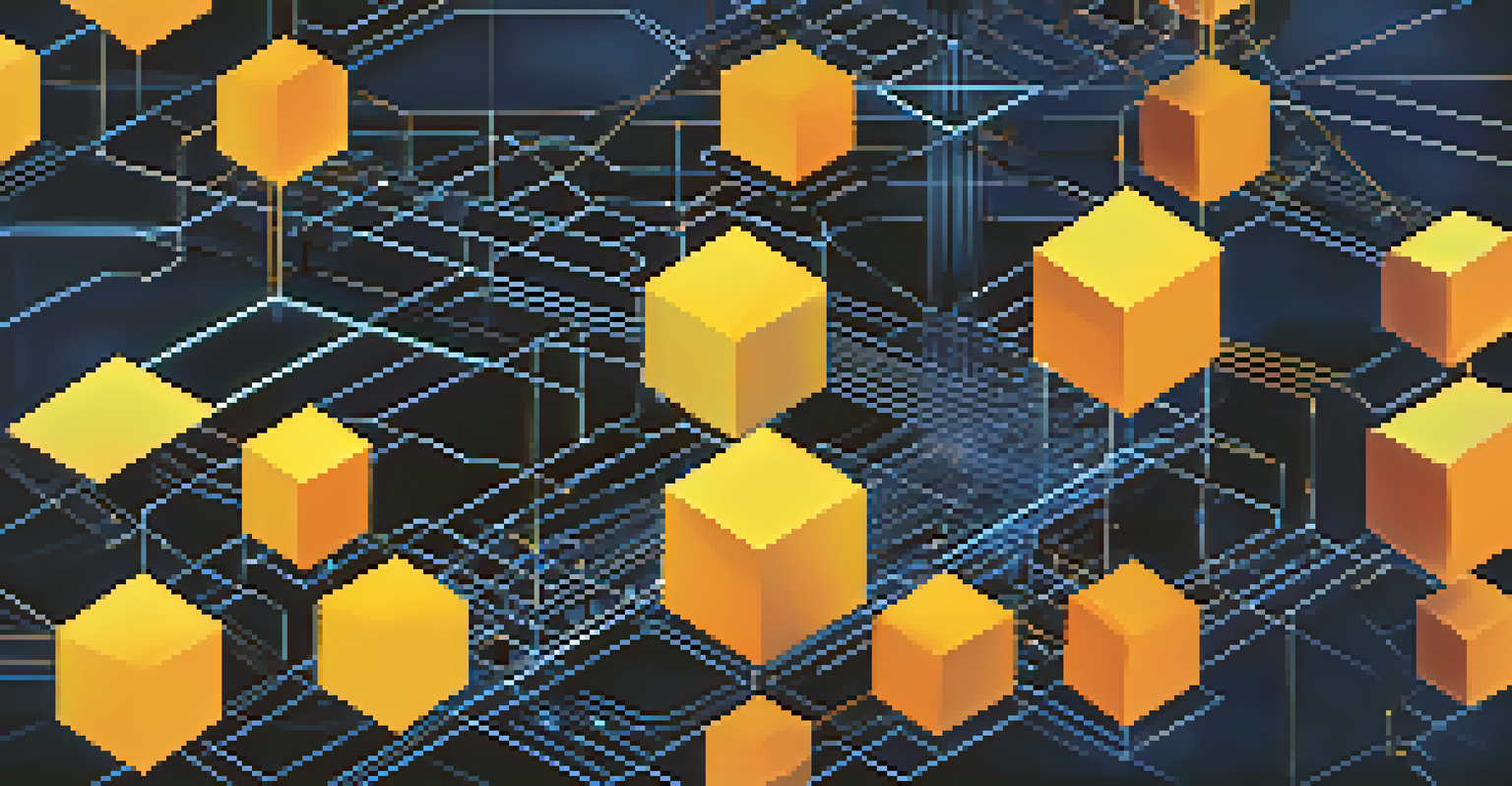Public Trust in Elections: Blockchain's Role in Building Confidence

Understanding Public Trust in the Electoral Process
Public trust is foundational to a healthy democracy, particularly in elections. When citizens believe that the electoral process is fair and transparent, they are more likely to participate actively. However, recent years have shown a decline in this trust, often fueled by allegations of fraud, misinformation, and external interference. This skepticism can lead to lower voter turnout and increased polarization, which ultimately undermines democratic institutions.
In a democracy, the people get the government they deserve.
To illustrate, consider how a single incident of alleged voter fraud can ripple through a community, prompting doubts about the legitimacy of the entire electoral process. Such scenarios highlight the need for systems that not only ensure integrity but also foster confidence among voters. Restoring trust is essential for engaging citizens and encouraging them to exercise their right to vote.
This is where innovative technologies like blockchain come into play. By leveraging this decentralized ledger technology, we can address many concerns about transparency and security in elections. As we explore blockchain's role, we’ll see how it can help rebuild trust in electoral systems and encourage greater civic participation.
What is Blockchain and How Does It Work?
Blockchain, at its core, is a digital ledger that records transactions across many computers so that the recorded transactions cannot be altered retroactively. This technology is often associated with cryptocurrencies, but its applications extend far beyond digital currencies. Each record on a blockchain is linked to the previous one, forming a chain of blocks that ensures data integrity and security.

Think of blockchain as a communal notebook where every page is securely locked and every entry is timestamped. If someone tries to alter an entry, everyone else with access to the notebook can see that something has changed. This transparency is a game-changer for elections, as it allows all stakeholders to verify the accuracy of the data without needing to trust a single authority.
Public Trust is Crucial in Elections
A healthy democracy relies on citizens' trust in the electoral process, which has been declining due to fraud allegations and misinformation.
Moreover, blockchain operates on a decentralized network, meaning no single entity controls it. This characteristic reduces the risk of corruption and manipulation, making it a powerful tool for enhancing public trust. By understanding how blockchain works, we can begin to appreciate its potential in creating more secure and transparent electoral processes.
Enhancing Voter Verification and Registration
One of the significant challenges in elections is ensuring that only eligible voters can participate. Traditional methods of voter registration can be cumbersome and prone to errors, which can lead to disenfranchisement. Blockchain can streamline this process by securely storing voter information and making it easily verifiable while preserving privacy.
Elections are the cornerstone of our democracy, and without trust in the system, we undermine the very foundation of our society.
Imagine a system where every citizen has a unique digital identity linked to their voter registration. With blockchain, verifying a voter's identity becomes a simple matter of checking their digital credentials against the blockchain. This not only speeds up the registration process but also minimizes the chances of fraudulent registrations.
By making voter verification more efficient, blockchain can help build confidence in the electoral process. When voters know that their identities are securely verified and that their votes will be counted accurately, they are more likely to engage in elections with trust and enthusiasm.
Ensuring Secure and Transparent Voting
Voting security is a paramount concern for any electoral system. The integrity of votes must be maintained from the moment they are cast until they are counted. Blockchain technology offers a solution by creating an immutable record of each vote, which can be audited and verified by anyone involved in the election process.
Picture a scenario where every vote is recorded as a block in a blockchain. Each block is linked to the previous one, creating a secure chain that cannot be tampered with. This means that once a vote is cast, it cannot be altered or deleted, addressing common fears of vote manipulation or fraud.
Blockchain Enhances Election Integrity
By providing a transparent and secure way to record votes, blockchain technology can help rebuild trust and encourage civic participation.
With such a system in place, transparency is greatly enhanced. Election monitors, political parties, and voters can all access the same data, ensuring that the counting process is open and accountable. This level of transparency not only reassures voters but also helps to dissuade those who might consider attempting to interfere with the electoral process.
Facilitating Real-Time Results and Audits
When it comes to elections, timely results are crucial for maintaining public trust. Voters want to know that their voices have been heard and counted accurately. Blockchain can facilitate real-time vote counting, providing immediate results that are transparent and verifiable.
Imagine a situation where, as soon as polls close, the votes are instantly recorded on a blockchain. Election officials can begin counting immediately, and the results can be published for public view almost in real time. This rapid dissemination of information helps to quell any speculation about the integrity of the election.
Additionally, the transparent nature of blockchain allows for easier auditing processes. If discrepancies arise, anyone can review the blockchain to trace any irregularities. This capability not only boosts confidence among voters but also strengthens the overall electoral framework by ensuring accountability.
Addressing Concerns: Privacy and Security
While the transparency of blockchain is a significant advantage, it also raises questions about privacy. Voters may be concerned about their anonymity and the security of their personal information. However, blockchain can offer solutions that balance transparency with privacy, ensuring that voter identities are protected.
In a blockchain voting system, individual votes can be encrypted and stored securely while still allowing for verification. This means that while the data is accessible for auditing, the identities of the voters remain confidential. It’s like casting a vote in a sealed ballot box that can be verified without revealing who cast it.
Privacy Concerns Must Be Addressed
While blockchain offers transparency, it is essential to protect voter anonymity and personal information to boost confidence in the electoral system.
By addressing these privacy concerns, blockchain can make voters feel more secure about participating in elections. This assurance is vital for rebuilding public trust in the electoral process and encouraging higher voter turnout.
The Future of Elections with Blockchain Technology
As we look to the future, the potential for blockchain to reshape elections is vast. Several countries and organizations are already experimenting with blockchain-based voting systems, providing valuable insights into its effectiveness. By embracing this technology, we can create a more secure, transparent, and trustworthy electoral process.
However, implementing blockchain on a large scale does come with challenges. Issues such as technological access, scalability, and ensuring public understanding of the system need to be addressed. Education and outreach will be essential to help voters and officials alike navigate this new landscape.

Ultimately, the future of elections may well depend on our ability to harness technology responsibly. By leveraging blockchain effectively, we can not only enhance public trust in elections but also empower citizens to engage more confidently in the democratic process.